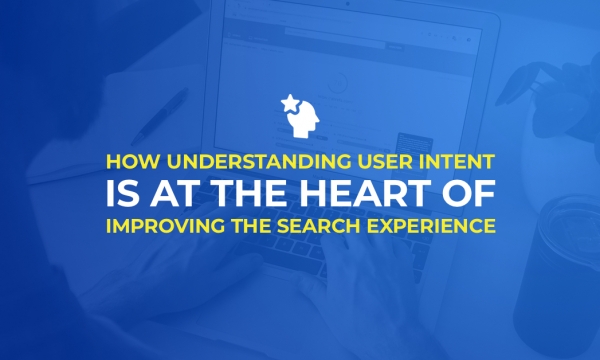
Google first published its Search Quality Guidelines in 2013, which explained the manual processes that Google uses to complement its automated algorithms. The document provided an insight into just how its staff judge quality content and how they assess whether a website is providing a user experience that the search engine would want to promote to its users.
Two years on, and much has changed in the world of search. That has prompted Google to issue an update to its guidelines and, as you might expect, there is a big emphasis on both content and mobile.
Good content is all about skill, expertise and care.

Whilst much is written about what constitutes ‘good quality’ content, Google has put on record what it considers to be poor quality content.
“We will consider content to be low quality if it is created without adequate time, effort, expertise, or talent/skill.”
Google’s guidelines uses examples of the types of ‘shortcut’ tactics often used by students when writing assignments, such as “buying in” content, making up statistics, paraphrasing from large bodies of text and only communicating basic ideas on a topic. Google argues that many of these tactics are deployed in the creation of web content.
One example of poor quality content could be a lack of detail being applied to a very broad topic, which would indicate that the content has not been written with any meaningful level of:
- Time, because the content is likely to short and lacking detail,
- Effort, because the content is likely to only contain very basic information,
- Expertise, as it is likely to lack any real insight which couldn’t be found elsewhere, or has been largely based on already-published material.
Google characterises this scenario with the example of a page that only contained a few paragraphs about a subject such as World War II, which is incredibly broad.
Expertise is an increasingly important area for Google, which makes a very clear statement on this issue:
"Some topics demand expertise for the content to be considered trustworthy. Topics such as medical advice, legal advice, financial advice, etc. should come from authoritative sources in those fields. Even everyday topics, such as recipes and housecleaning, should come from those with experience and everyday expertise in order for the page to be trustworthy."
The guidelines ask assessors to question whether the publisher or organisation has sufficient expertise or authority to talk about this topic.
Taking this guideline at face value, there is a strong inference that this could benefit established brands and prominent publishers that have built reputations for quality, authoritative content. However, there is a lifeline for smaller, less established publishers.
Google won’t be judging all websites equally. It acknowledges that it’s unreasonable to hold the website of an enthusiastic blogger or start-up business to the same standards of multi-national corporations.
"We have very different standards for pages on large, professionally-produced business websites than we have for small amateur, hobbyist, or personal websites. The type of page design and level of professionalism we expect for a large online store is very different than what we might expect for a small local business website."
It means that Google won’t necessarily judge your website as “low quality” if your site features one or two conventions typical of a low quality page, as long as other elements make up for that fact. Google will instead encourage its staff to determine whether the presence of these conventions are the result of a poor quality website in general, or if they are merely a symptom of a less-professional web page.
User Generated Content

A topic that often generates some heated debate is that of user generated content (UCG), and suggestions that expertise and authority are important in determining quality are going to reignite that debate.
However, it is important to note that many successful businesses have been built predominantly on UGC, such as Trip Advisor and Trust Pilot, and Google recognises this fact.
"Some types of user-generated content have a high level of expertise. There are forums of experts on topics ranging from sewing to car repair to do-it-yourself home improvement projects. User-posted content can be highly trustworthy for many everyday topics. In fact, for some unusual hobbies, the most expert advice may exist on blogs, forums, and other user-generated content websites."
The guidelines do warn staff about the pitfalls and the downsides of UGC and, in simple terms, they place the onus on the reviewer to “value everyday expertise and experience for everyday topics” when trying to determine whether the author is trustworthy.
Advertising could bring down your page quality score

Advertising, and more accurately, the blocking of advertising, is a huge discussion point at present and this is a point in the Google guidelines.
The search engine wants to avoid directing its users to websites that use techniques to promote what it describes as “unhelpful or distracting supplementary content” – and ads fall very much into this definition.
One such example of “distracting and unhelpful supplementary content” are promotions for sponsored content. Often powered by content networks, this typically provide links to unrelated and irrelevant ‘click bait’ articles:
"Some webpages are designed to encourage users to click on [supplementary content] that is not helpful for the purpose of the page. This type of [content] is often distracting or prominently placed in order to lure users to highly monetized pages.
"Sometimes, distracting and unhelpful [supplementary content] is actually Ads. We can consider this both unhelpful/distracting, as well as deceptive/misleading page design."
In-text ads are another area of contention, and Google’s guidelines are very clear on that one too.
“Popover ads (the words that are double underlined in blue) can make the main content difficult to read, resulting in a poor user experience.”
And if you’re website is one that features prominent advertising, the growth of ad blockers isn’t your only worry. The Google guidelines asks its staff to consider whether large ads are “pushing down the main content” and providing a “highly distracting” user experience. Your ads should also be clearly marked.
Mobile, unsurprisingly, is important

Shock horror, mobile usability is a big factor in the 2015 edition. Fresh from ‘#mobilegeddon’ and various other initiatives to promote mobile friendliness, (including those just recently rolled out).
The key point that Google is trying to address here is that they want to websites to recognise the fact that smartphones can be “challenging to use, especially compared to a desktop computer or laptop.” It wants websites to make the user experience easy for users, irrespective of their device, and acknowledge that the challenges that face smartphone users are different to those faced by desktop users.
The guide points to four key issues that it wants assessors to focus on, and ultimately judge how a website caters for these challenges. These are:
- Data Entry: Typing on a smartphone can be difficult. Websites could address this by offering simpler forms for mobile users.
- Small screen size: Websites should be responsive and optimised for smaller screens.
- Navigation and general user experience: Website navigation can be difficult as menus and navigation links may be small. Images and text may also be oversized for the screen, resulting in unnecessary scrolling.
- Connectivity: Mobile bandwidth is often slower and more expensive than desktop bandwidth. Delivering huge quantities of data may slow down the mobile experience.
Intimately, Google will be determining whether a user can easily find the information that they are looking for irrespective of the device they are using. If you aren’t service those devices, you are likely to see that reflected in your page score.



